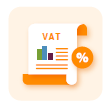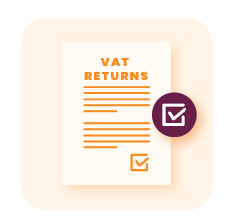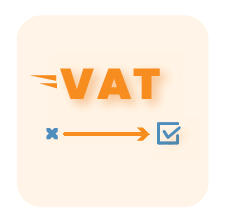Reverse Charge & “Call Off Stock” in Malta
Consignment stock refers to the inventory that a supplier or “consignor” ships to a warehouse, from where it is eventually sold to an end customer via a middleman known as a consignee. The inventory remains under the consignor’s control until it is about to be sold, at which point the title transfers to the consignee.
Call-off stock, on the other hand, is inventory that a supplier has transferred to a warehouse or storage facility and can be accessed at any time by a previously identified customer, who typically owns or controls the warehouse.
Read more about Reverse Charge and “Call-off stock” in Malta in our comprehensive guide below.
Selling in Malta?
Malta – Call off stock
Foreign consignors who bring goods into Malta as consignment or call-off stock are generally required to register for Maltese VAT.
If goods are transported to Malta from outside the EU, the consignor typically considers the transaction as an import, provided that the consignor is the importer, as per the set regulations. However, if the transfer is made from within the EU, it is typically seen as an intra-Community acquisition of their goods by the consignors, followed by a domestic supply to a consumer. Either scenario triggers a requirement for registration.
Simplifying the EU’s call-off stock regime
Article 17a of the EU VAT Directive, implemented from January 1, 2020, proposes a simplification plan, which allows EU-registered suppliers of call-off stock to bypass the registration obligation. This article has been incorporated into Maltese law through Schedule 2(17A) of the Maltese VAT Act. Prior to this date, unlike many EU member states, Malta hadn’t established a simplification plan for consignment or call-off stock.
Schedule 2(17A) applies when a supplier transfers goods to a warehouse in a different EU Member State for a subsequent delivery to an identified buyer. Under the simplification rule, the move to the warehouse isn’t a taxable event. However, the subsequent transfer of ownership of the items to the recipient is a taxable event. The taxable transaction is considered a zero-rated intra-Community supply of goods from the supplier to the buyer and an intra-Community acquisition in the Member State. Therefore, the supplier is no longer obliged to register for VAT in the destination Member State.
Schedule 2(17A) encompasses call-off stock arrangements that meet the following conditions:
- The goods are shipped or transported to another Member State by a taxable entity, or by a third party acting on behalf of the taxable entity, with the aim of supplying those goods there at a future time, to another taxable entity who has the right to assume ownership based on a pre-existing agreement between both parties.
- The taxable entity moving or transferring the goods does not have a business or a permanent establishment in the Member State where the goods are shipped or transported.
- The intended recipient is registered for VAT in the Member State to which the goods are shipped or transported. The taxable entity must know both the recipient’s identity and their VAT identification number assigned by that Member State.
- The intended recipient must take possession of the goods within 12 months of their arrival at the consignment location.
Download the Maltese VAT Guide
Malta – Import VAT
The liability for Maltese VAT is determined by the location of the supply of goods or services, not by the location of the supplier. In general, VAT is payable on all purchases of goods and services from outside Malta at the same rate that would apply if the goods or services were supplied within Malta. For services, the reverse charge mechanism, in conjunction with the place of supply rules, ensures a similar outcome.
The term ‘importation’ refers to the process of bringing goods into Malta from regions outside the European Union. The act of bringing goods into Malta from another EU country is labelled as an intra-Community acquisition, not an import, and it follows a distinct set of rules.
Usually, when goods are imported from non-EU countries, the importer is obligated to pay the VAT prior to the release of the goods from Customs. Typically, an ‘importer’ refers to a business that brings goods into Malta to sell as part of its commercial operations, hence, is likely to be a VAT payer.
Reliefs from Import VAT
Under the Fifth Schedule of the VAT Act, specific goods or services that are imported or acquired from within the EU are not subject to Maltese VAT.
These goods or services include the following:
- Goods that are exempt from customs duty, such as food and investment gold.
- Non-commercial goods sent between individuals, provided that they have no commercial character, and their value does not exceed 45 euros. This exemption also applies to tobacco and tobacco products, alcohol and alcoholic beverages, perfumes, eau de toilette, tea and coffee, as long as they are within the quantities specified by the Ministry of Finance.
- Goods exempt from customs duty.
- Goods imported from a third territory, if the importer follows this up with either an exempt supply as an intra-Community supply of goods or a transfer of own goods to another EU Member State.
- Catches of fish.
- Goods that are intended to be placed under a customs duty suspension regime.
- Re-importations of goods (excluding the value of any repairs, transformations or adaptations outside the EU).
- Gas, electricity, heat or cooling energy through systems or networks.
Last Updated: 28/12/2023
Disclaimer
The information provided by Global VAT Compliance B.V. on this webpage is intended for general informational purposes only. Global VAT Compliance B.V. is not responsible for the accuracy of the information on these pages, and cannot be held liable for claims or losses deriving from the use of this information. If you wish to receive VAT related information please contact our experts at support@gvc.tax








